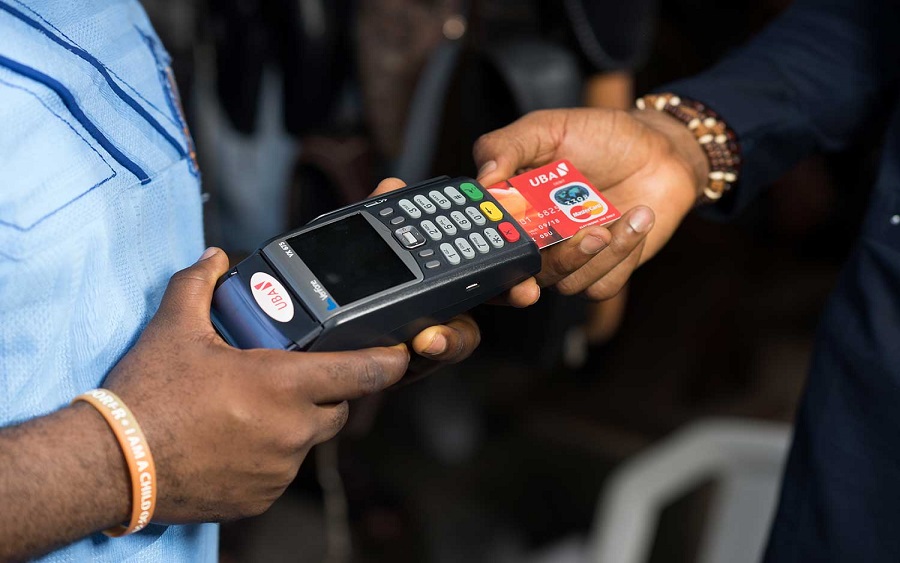Picture this: you’re in a bustling market in Lagos or a quiet village in Ogun, and people are lining up to withdraw cash, pay bills, or top up their phones. That’s the beauty of a Point of Sale (POS) business in Nigeria: a chance to meet real needs while earning a steady income. With digital payments on the rise and many Nigerians still far from banks, a POS business can be a game-changer. Let me walk you through how to start one in your area, sharing practical tips and a bit of local flavor to make it feel real and doable.
What’s a POS Business All About?
In Nigeria, a POS business is like being the go-to person for quick financial fixes. You’re helping folks withdraw cash, transfer money, pay for DSTV, or buy airtime using a small terminal linked to a bank or fintech platform. It’s a lifeline in places where ATMs are scarce or banks are a trek away. Think of it as running a mini-bank right in your community, earning small fees for every transaction. With Nigeria’s push for cashless payments and a huge unbanked population, this business is a golden opportunity if you play it smart.
Step 1: Get to Know Your Area
First things first, you’ve got to understand what’s happening around you. Take a stroll through your local market, bus park, or estate. Check out existing POS spots, maybe that small kiosk in Oshodi or a shop near your village square. Watch how they operate. Are customers queuing for cash? Are they asking for bill payments or airtime? Notice what’s missing, maybe there’s only one POS guy in a busy area, or nobody offers data bundles.
Chat with people around you. Ask your neighbor what they struggle with when it comes to banking. Maybe they’re tired of trekking to an ATM that’s always out of cash. This kind of detective work helps you figure out what services will make you the go-to person in your area. Plus, knowing your customers, whether they’re traders, students, or okada riders, will shape how you set up shop.
Step 2: Pick the Perfect Spot
Your location can make or break your POS hustle. You want to be where the action is: think busy markets like Balogun, crowded bus stops like Berger, or neighborhoods where banks are far off. If you already run a small shop, like a provision store or barber salon, adding a POS terminal is a no-brainer to pull in more customers.
Make sure your spot is safe and easy to find. A bright sign saying “POS Here” works wonders. If you’re in a rural area, you could even go mobile, carrying your terminal to different villages or market days. Just imagine setting up near a church on Sunday or a market in Epe, anywhere people need quick cash or services.
Step 3: Team Up with a Bank or Fintech
To get started, you’ll need a POS terminal from a bank or fintech company. In Nigeria, you’ve got solid options like FirstBank, GTBank, or fintech stars like Moniepoint, Opay, and PalmPay. These guys provide the tech and process your transactions, while you earn a commission for each one. Do your homework to pick the right partner. Here’s what to look for:
- Reliability: Nobody likes a terminal that’s always offline. Platforms like Moniepoint or Opay are known for solid networks.
- Fees: Check how much you’ll earn per transaction, maybe ₦100 for every ₦10,000 withdrawn. Compare to find the best deal.
- Support: You’ll want a provider with a helpline that actually picks up when a transaction goes wrong.
- Services: Make sure they offer what your customers need, like cash withdrawals, airtime, or NEPA bill payments.
To sign up, you’ll likely need your BVN, a valid ID (like your voter’s card or driver’s license), proof of address, and sometimes a registered business name from the CAC. Some platforms ask for a starting float, say ₦50,000 to ₦100,000, to cover transactions.
Step 4: Get Your Cash and Gear Ready
Starting a POS business isn’t free, but it’s not a fortune either. You’ll need some money for:
- POS Terminal: These cost ₦30,000 to ₦100,000, though some providers like Moniepoint give free ones if you hit transaction targets.
- Cash Float: Keep ₦200,000 to ₦500,000 handy for withdrawals and deposits. Nigerians love cash, so you need to be ready.
- Setup Costs: Budget ₦50,000 to ₦100,000 for a signboard, a table, a chair, and a secure cash box. If you’re in a risky area, maybe add a small safe.
- Extras: Plan for data (₦5,000/month for internet) and power (generator fuel if NEPA isn’t reliable).
If you’re tight on cash, dip into savings, check out microloans from places like LAPO, or team up with a friend or local shop owner. Some fintechs even offer financing to help you get started.
Step 5: Sort Out Licenses and Rules
You don’t want EFCC knocking on your door, so make sure you’re legit. The Central Bank of Nigeria oversees POS businesses, and you might need a business registration with the CAC (about ₦10,000 to ₦50,000). Some providers handle the agent banking license for you, but check with your local government for any extra permits. Also, register with the FIRS for taxes and keep good records of every transaction. It’s a small effort to stay on the right side of the law and build trust with your customers.
Step 6: Set Up Shop
Once you’ve got your terminal, set it up in a secure spot and test it out. Practice using it yourself, learn how to process withdrawals, transfers, and airtime top-ups. If you’re hiring someone, train them well so they don’t mess up transactions. Know how to handle common hiccups, like when the network acts up or a customer disputes a charge. Your provider’s support line is your friend here.
Cash is king in a POS business, so manage it like a hawk. Keep a daily record of every kobo that comes in and out. Deposit extra cash in the bank regularly to avoid carrying too much, especially overnight. A strong cash box or safe is a must to keep things secure.
Step 7: Spread the Word
In Nigeria, a POS business thrives on visibility and trust. Get people to know you’re open for business with these ideas:
- Signage: Put up a bright sign saying “Cash Out, Airtime, Bills Paid Here” with your fees listed clearly.
- Hype Locally: Tell everyone, your church group, market women, even the okada guys. Word of mouth spreads fast.
- WhatsApp Hustle: Post about your services on WhatsApp status or create a group for updates and promos.
- Small Incentives: Give free ₦100 airtime for big transactions to keep customers coming back.
Link up with nearby businesses, like a provision store or betting shop, to attract their customers. If you’re in a market, offer quick cash for traders who need change, it’s a sure way to build a loyal crowd.
Step 8: Treat Customers Like Family
Trust is everything in Nigeria’s POS game. Be upfront about your fees, maybe display a chart like “₦100 for ₦10,000 withdrawal.” Process transactions fast and explain what’s happening, especially if there’s a glitch. If something goes wrong, stay calm and sort it out with your provider. A smile and a friendly vibe go a long way, make people feel like they’re dealing with someone they can rely on.
If you have staff, make sure they’re just as friendly and honest. Open early and close late (say 8 AM to 8 PM) to catch customers when they need you most.
Step 9: Keep Growing and Stay Sharp
Use your provider’s app or dashboard to track how many transactions you’re doing and how much you’re earning. If you see airtime sales spiking, push that service harder. Aim for 50 to 100 transactions a day to keep the money flowing. To grow bigger:
- Add Terminals: Get more devices to handle crowds or open another spot.
- Offer More: Add services like betting payments or data bundles if your platform allows.
- Expand: Set up in a nearby town or market to reach more people.
Stay in the loop on CBN’s cashless policies or new fintech apps to keep your business ahead of the curve.
Tackling the Tough Stuff
Every business has its wahala, but you can handle it:
- Network Issues: Pick a provider with a strong network and keep a backup SIM (MTN or Airtel) for data.
- Cash Crunch: Team up with a bank or another agent to restock cash fast.
- Competition: Stand out with lower fees, faster service, or extras like free airtime for big spenders.
- Safety: Get a small CCTV or lockbox, and don’t flash cash to avoid attracting thieves.
How Much Can You Make?
A POS business can bring in serious cash if you hustle right. Let’s say you do 50 transactions a day at ₦100 each, that’s ₦5,000 daily or ₦150,000 a month. Push to 100 transactions or add services like bill payments, and you could hit ₦300,000 monthly. Keep your costs low, negotiate better rates with your provider and cut down on extras like fuel, to pocket more profit.
Wrapping It Up
Starting a POS business in Nigeria is like planting a seed in fertile soil. Find a great spot, team up with a solid bank or fintech, and treat your customers right. Stay on top of your cash, promote your services like a pro, and keep learning as you go. You’re not just making money, you’re helping your community access services they need every day.
Personal Reflection: I think of Mama Nkechi, a shop owner in Ibadan who started her POS business with one terminal. She listened to her customers, added bill payments, and now runs three spots, employing two people. Her hustle shows what’s possible when you put in the work and care about your people. What’s the one thing you’ll do differently to make your POS business the talk of your town?


